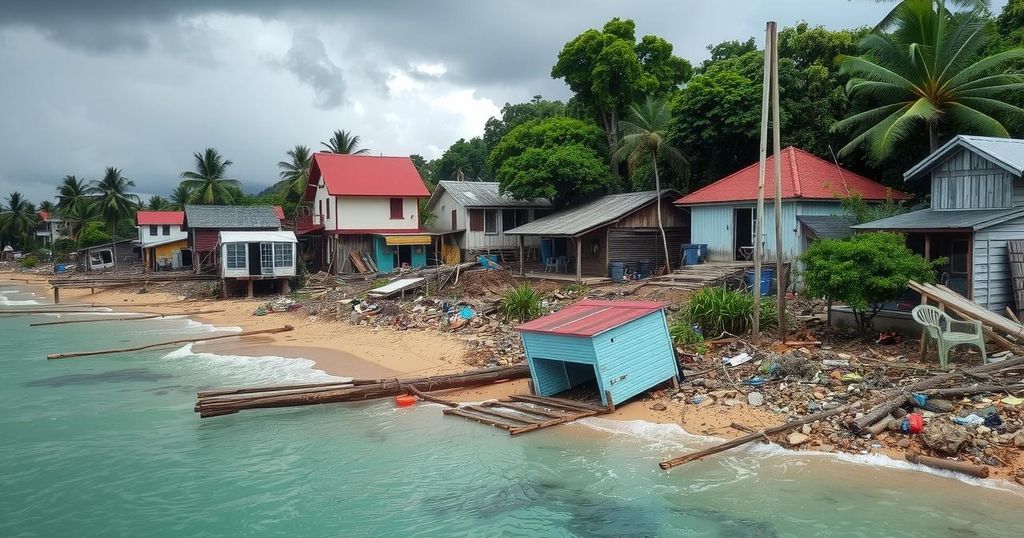Brazil has highlighted the urgent need for global adaptation to climate change following the devastating impact of Cyclone Chido in Mayotte. Offering condolences to the affected parties, Brazil calls for intensified international efforts to address climate challenges, especially as it prepares to host the COP30 conference. The country’s commitment to reducing greenhouse gas emissions and aiding developing nations underscores the importance of collective action against climate-related disasters.
The recent cyclone that struck Mayotte, a French territory in the Indian Ocean, has prompted Brazil to emphasize the urgent necessity for global adaptation to climate change. Offering heartfelt condolences to the victims of Cyclone Chido, which is reported to be the most devastating cyclone in 90 years, Brazil’s foreign ministry has called upon partner nations to intensify their efforts in combatting the impacts of climate change, as natural disasters become increasingly severe.
Brazil, which held the G20 presidency this year and is set to host the COP30 climate conference in the Amazon in November 2025, has reiterated its commitment to addressing climate change and supporting affected nations. The foreign ministry expressed solidarity with the people of Mayotte and the French government during this challenging time, particularly noting the difficulties faced in rescue and assessment operations due to the cyclone’s destruction.
Notably, Brazil is advocating for more robust international measures to meet ambitious climate targets and has taken significant steps to reduce deforestation in the Amazon under President Luiz Inacio Lula da Silva’s leadership. Brazil has outlined plans to reduce greenhouse gas emissions beyond its initial goals and is actively seeking enhanced funding from wealthier nations to aid developing countries in their climate change mitigation efforts. The cyclone’s devastation underscores the critical importance of prioritizing global collaborative actions against climate vulnerabilities.
The recent cyclone disaster in Mayotte highlights the broader implications of climate change and the necessity for adaptive strategies on a global scale. Cyclone Chido, which resulted in considerable loss of life and destruction, serves as a stark reminder of the increasing frequency and intensity of climate-induced natural disasters. In this context, Brazil’s active role in international climate discussions, particularly through its forthcoming hosting of the COP30 conference, positions it as a key player advocating for more aggressive climate action and adaptation measures. The country’s focus on reducing greenhouse gas emissions and combating deforestation in the Amazon further reflects its commitment to addressing these urgent environmental challenges.
In summary, the catastrophic impact of Cyclone Chido in Mayotte has underlined the pressing need for coordinated global efforts to adapt to and mitigate the consequences of climate change. Brazil’s call for international collaboration, along with its commitment to reducing emissions and curbing deforestation, emphasizes a proactive approach to combating climate-related disasters. As Brazil prepares to host the next climate conference, the urgency for enhanced efforts to protect vulnerable nations and populations is more critical than ever.
Original Source: www.barrons.com







